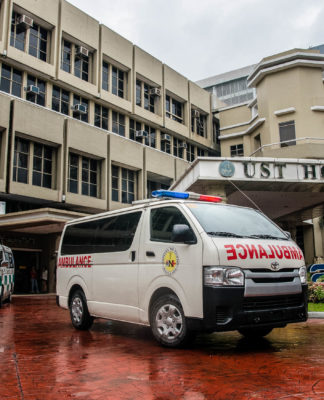DRUG dependency can be cured by the “therapeutic community” model that uses peer pressure to wean the dependent away from addiction, according to a rare panel composed of ex-drug dependents during the 2004 Theology Week.
With the theme “Love, Compassion, & Solidarity in a Globalized World,” Dr. Benita Sta.Ana-Ponio, chair of the Committee on Addiction Psychiatry of the Philippine Psychiatric Association, talked on “Solidarity with Drug Addicts” at the Ecclesiastical Faculties Martyr’s Hall last month.
Ponio, together with three former drug dependent clients, gave insights on the prevalent yet misunderstood issue of drug addiction recovery.
“Drug addicts have dreams and aspirations, feelings and the desire to change despite their difficulty in controlling their impulses,” said Ponio, who is the executive director of the Metro Psych Facility of Roads and Bridges to Recover Drug Treatment and Rehabilitation Center (RBR).
RBR sets a “therapeutic community” model for drug rehabilitation, a highly structured, hierarchical, non-permissive environment that uses peer pressure to check addiction. RBR also seeks to change drug addicts’ belief systems and rebellious attitude toward authority figures.
Ponio said inclination to drugs can be genetic. It may also be a result of “classical conditioning,” whenever a person is depressed or angry. Social factors may include peer pressure, stress, borderline and antisocial personality disorders, poverty (as in the case of street children sniffing rugby), and abuse of money. Drug addiction makes one vulnerable to other substance addictions and addictive behaviors such as gambling, sex, and work.
“The individual’s relationship with his significant others in infancy, childhood, and adolescence have always been known to affect his coping abilities,” said Ponio, pointing that deficiency in self-development and self-esteem, and response to sufferings, are among the psychodynamic factors of drug addiction.
Ponio said drug addicts need to learn how to cope with life’s crises, and face the causes and consequences of their behavior, mostly concerning marital problems, parenting issues, domestic violence, financial and sexual orientation problems, and physical/sexual abuse and illnesses.
Suicide thoughts abound in drug addicts which may be the result of the severe depression that ensues after the “high.” Suicide is often considered as an option due to their deficient problem solving skills.
According to Ponio, family therapy, where the family goes through therapeutic debriefing sessions discussing issues of shame, trust, guilt, and anger, is an essential part of the rehabilitation process since the impact of addiction affects all aspects of family life.
Furthermore, rehabilitation does not end upon discharge or completion of residential program because of the risk of relapse.
“Any rehabilitated addict knows that it is going to be a lifetime struggle that they will need to face,” she said. “Spiritual renewal and establishing a relationship with the Higher Power is often at the forefront of ever effective after-care program.”
















pls send me the unwritten philosophy and how manny, example Humility and Acceptance, etc. thank you